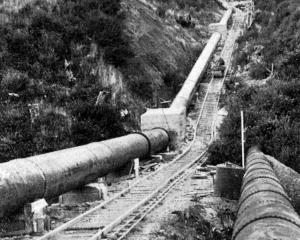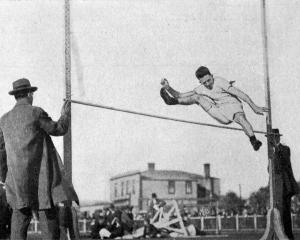
The financial and commercial magnates of Germany clearly looked to President Wilson to prevent them from falling into the pit which they had assisted in digging.
A number of them went the length of issuing appeals to him, through a news agency of doubtful character, to see that Germany is spared the punishment that is usually inflicted upon the vanquished aggressor in a war.
Not that they acknowledge that Germany was either the aggressor in the war or was defeated in it.
Provident Fund claims
Recently Mr A. W. Croskery, secretary of the Wellington Soft Goods Employees' Union, brought under the notice of the Minister in Charge of the National Provident Fund the position of the windows of two subscribers to the fund.
It is provided by the regulations that no pension is payable unless a subscriber's contributions cover a period of five years. In one of the cases mentioned by Mr Croskery to the Minister, only three days were required to complete the period; in the other case the deficiency was rather longer.
As both contributors had died during the influenza epidemic it was thought that the department might be able to see its way to give the cases some special treatment; but this, according to the Minister, is not possible. The essential portion of the Minister's letter reads:
''These claims have been very carefully investigated, with a view to ascertaining whether the dependents are able to claim the allowances provided in respect of contributors who have been in the fund for the stipulated period of five years. It is regretted, however, that in both of these cases, as in others, the membership fell short of the actual period, and consequently no widow and children's allowances can be paid out of the fund on account of these contributors. I can assure you that my board has every sympathy with these cases, but the Act gives no discretionary power to vary the conditions accepted by contributors on joining the fund.''
Nauru control
An official message from London, dated 18th February, states: With reference to the disposal of Nauru, a small island south of the Equator, for which Mr Hughes, on behalf of Australia, has lodged a claim for mandatory control, Mr Massey has circulated among the British Empire delegates a memorandum explaining New Zealand's interests in the future of Nauru.
He points out that, although this island was formerly held by Germany, it was for many years exploited by a British company by arrangement with the German authorities for Phosphatic deposits. He emphasises the fact that New Zealand, like Australia, is already a large producing country, which requires, in order to maintain the fertility of the depleted soil, a good supply of phosphates at a reasonable price.
There are ample supplies at both Nauru and Ocean Island, which are about equidistant from Auckland and Sydney.
- ODT, 20.2.1919.
COPIES OF PICTURE AVAILABLE FROM ODT FRONT OFFICE, LOWER STUART ST, OR WWW.OTAGOIMAGES.CO.NZ












